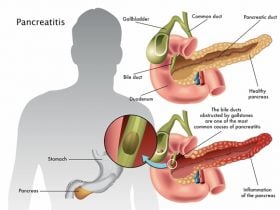Overview

The adrenal glands which are responsible for the production of the several hormones needed by the body to function normally, are located on top of the kidneys. Addison’s disease is a condition that occurs when damage has been done to the adrenal cortex, and the adrenal glands are unable to produce adequate steroid hormones cortisol and aldosterone.
Cortisol [1] is responsible for the regulation of the body’s reaction to stress. It also helps to maintain heart function, blood pressure, blood sugar (glucose) levels and the immune system. Aldosterone [2] aids in regulating the balance of potassium and sodium in the blood. The adrenal cortex also produces androgens (sex hormones) [3].
The Addison disease can occur amongst all age groups and gender. It can also become life-threatening. The Addison disease is also known as ‘primary adrenal insufficiency’ [4]. The damage to the adrenal glands occurs slowly over time and the symptoms begin to manifest gradually. Some common symptoms include;













